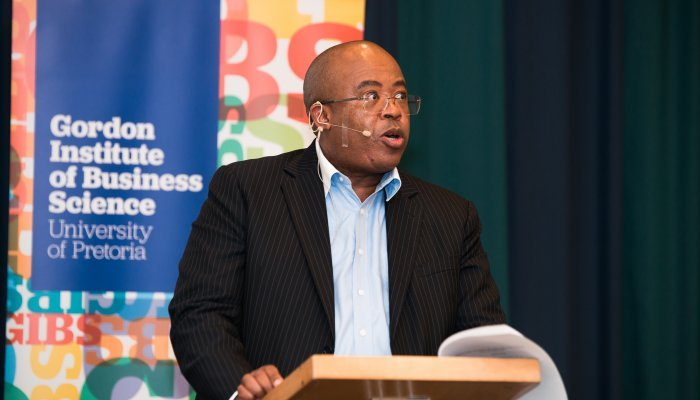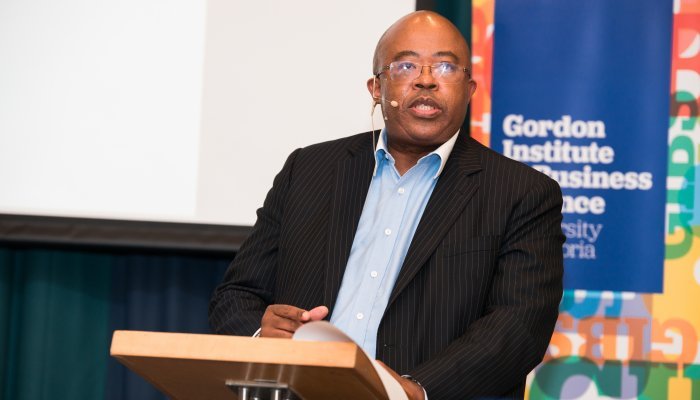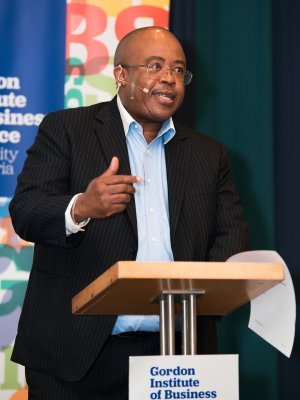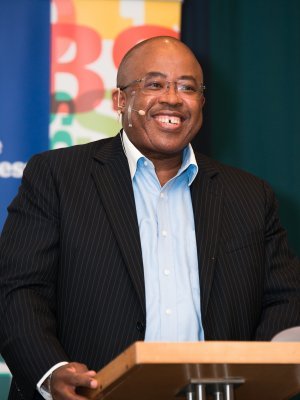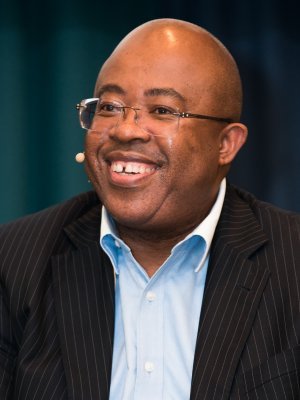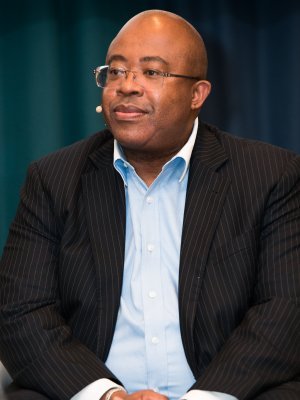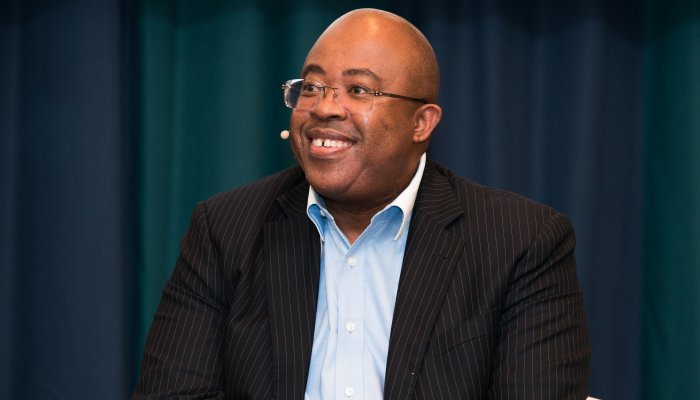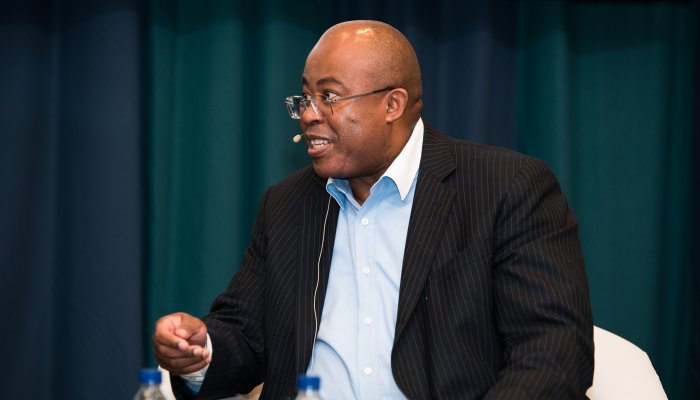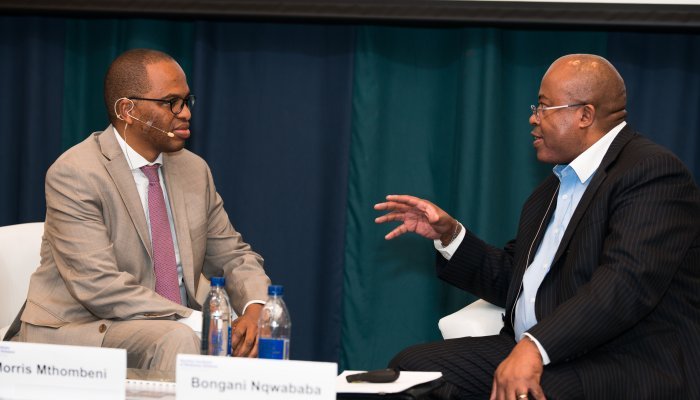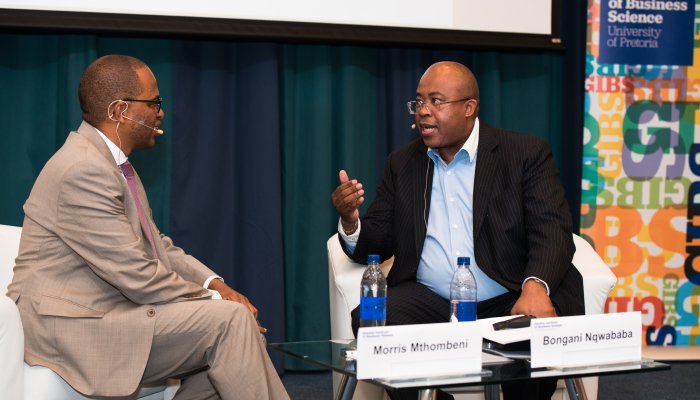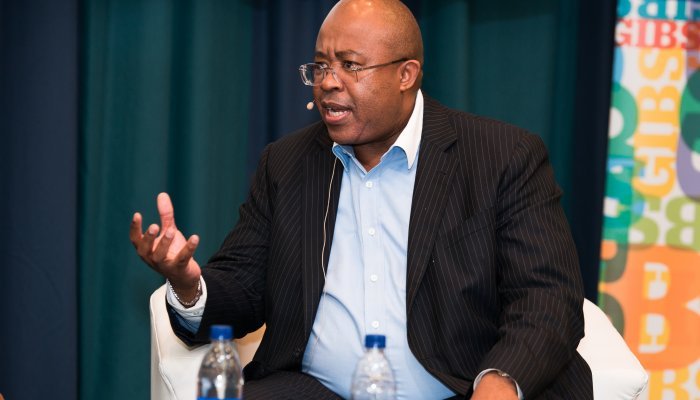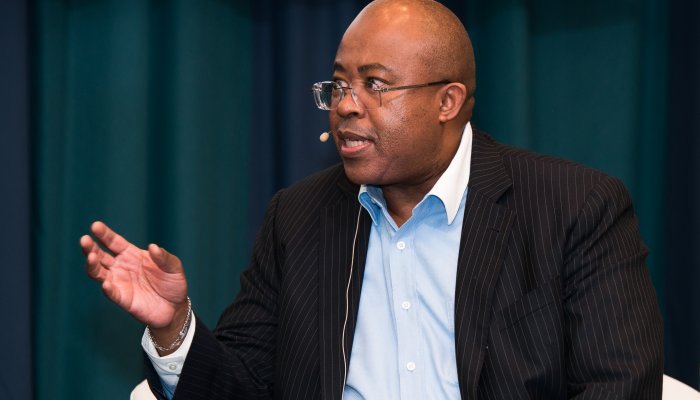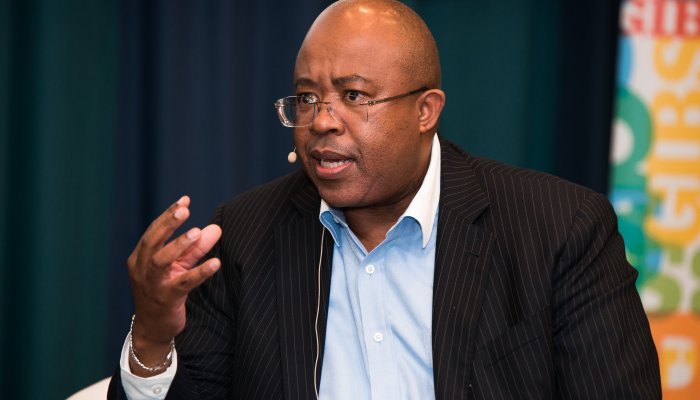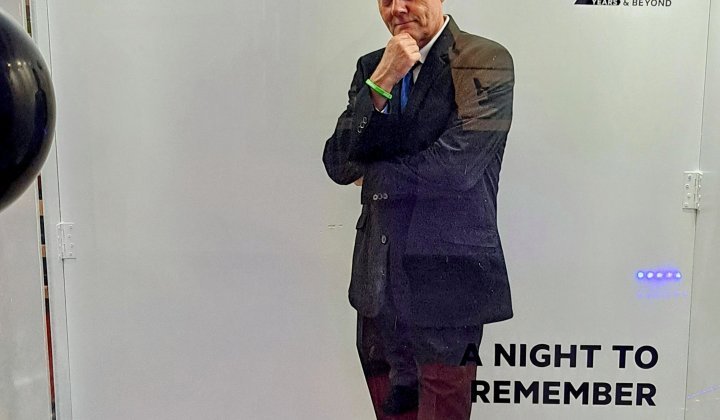Sasol is best known to many people as Africa’s fuel giant, but Bongani Nqwababa, Executive Director, Joint President and CEO of Sasol Ltd., says its future is in chemicals, and a transformed culture is what will make that transition a success. Nqwababa spoke at a GIBS Forum in June about accelerating the transformation of corporate culture through leadership at Sasol, as well as the company’s future – including potential expansion into Asia. Plus, we asked him about his recipe for success in managing the joint company custodianship with his counterpart, Stephen Cornell.
Culture can’t be separate from strategy
“Organisations that successfully transform their cultures do not view culture, strategy and leadership as separate,” says Nwqababa. “Together, these components drive high-performance culture and create superior value for all stakeholders.”
Nqwababa was presenting Sasol’s plan to shift its leadership style towards “aspirational” from what he described as “command and control”. He reasons that people are key to this process. Everything else – strategy and process, for example – can be copied, within reason. It’s an organisation’s people that are its sustainable long-term competitive advantage.
For this reason, Sasol is undergoing a culture transformation – to deliver superior value to all stakeholders. “Culture is not a variable to be paid attention to from time to time. It’s essential,” Nqwababa says, as he shares the process of critically reviewing the company’s culture and leadership approach. He notes that this needed to be facts-based, and included a company-wide culture survey, Heartbeat, undertaken in 2016. Leadership interviews and workshops were also held with the company’s extended leadership teams.
Nqwababa admits that the shift will not happen overnight and is a long-term plan that will take three to four years to realise. The company needs to move from being stuck to the past, to ready for the future. One of the biggest barriers, Nqwababa says, has been the leadership style. Command and control leadership is rooted in fear and silence, and focused on activity, rather than creating value. While it’s common in energy and chemicals companies, it’s not ideal.
The focus at Sasol now is on inspirational leadership who care for people, live the Sasol values and drive high-performance and innovation. Sasol is working on cultivating “multiplier leaders” – those who create positive energy to help employees bring their best performance and ideas to work every day.
The company has identified five key behaviours of multiplier leaders who grow others. These people are talent magnets, liberators, challengers, debate-makers and investors. The Lead Sasol Programme has been developed to provide practical tools to Sasol leaders to cultivate these behaviours. The Group Executive Committee has also been through this programme.
While Nqwababa reiterates that it’s not a quick process, he says results have been encouraging so far.
It’s an organisation’s people that are its sustainable long-term competitive advantage.
Proudly South African but building a global company
Nqwababa notes that Sasol in currently represented in 33 countries globally, although the bulk of these are sales offices. “There are just under 10 countries where we have substantive operations, including South Africa, Mozambique, Italy, Germany, Qatar, Nigeria (where we have a joint venture) and the USA, where we are growing.”
He admits that the company is looking at Asia, which will account for 40% of chemicals demand globally in the next 10 years. “We’re building a relatively small ethylene oxide plant in China for $100 million,” he says. “It’s on track and we’ll go and see it before the end of the year.”
He has also visited India to explore how Sasol can grow there, where he says the demographic and growth rates are favourable. “It took them 50 years to get to a GDP of $2 trillion; it will take another six years to get to a GDP of $4 trillion.”
Nqwababa is adamant, however, that “South Africa will certainly remain Sasol’s ‘nerve centre’.” He says he’s watched South African companies that have listed abroad, and the majority have failed. “They tried to be what they are not,” he says. “There’s only one success I can think of, and they were bought by a rather successful beer company.”
He says that while Sasol is a global company, it remains proud of its home market and its commitment to South Africa has never wavered. “Notwithstanding our expansion and growth overseas, South Africa is where the majority of our employees are based – housing 90% of our 31 000-strong global workforce – and where we continue to invest significant capital, both for growth and sustenance, as well as social investment.
...an effective joint-CEO partnership is rare.
“In our last financial year, we invested R115 billion in capital and operational spend in our South African operations. We also invested R1.6 billion in skills and socioeconomic development programmes globally, 80% of which was in South Africa. We also remain the leading taxpayer, contributing at least R35 billion annually to the fiscus.”
Shifts for sustainability
Sasol is the second biggest emitter of carbon dioxide in South Africa and while South Africa’s government wants to reduce harmful emissions by 34% by 2020, Sasol has already admitted it will need to apply for postponements. In June 2017, the company said it intended to apply for an extension for some of its plants to 2025, and that reducing its SO2 (sulphur dioxide) and H2S (hydrogen sulphide) emissions would be a particular challenge.
“What we are doing about it starts with our strategy,” says Nqwababa. “We are now actually more of a chemicals company than an energy company. Diversification is helping us to reduce our emissions. Our operations in Sasolburg are now almost fully gas-powered, where they used to be coal-powered. Yes, it’s still a fossil fuel, but it’s a much lower carbon intensity. We now only use coal for steam generation for the industries nearby. In Secunda, up to 15% is being transitioned to gas. In addition to portfolio change, we’re focusing on energy efficiency.”
Sasol recently unveiled one of the largest Air Separation Units (ASU) ever built (constructed and managed by Air Liquide). The air production facility is based at Sasol’s synthetic fuels and chemicals complex in Secunda and cost an estimated R2.9 billion. It has a total production capacity of 5 000 tonnes of O2 per day, which will be used to produce synthetic fuels. According to Nqwababa, it uses 20% less electricity (avoiding approximately 200 000 tonnes of carbon dioxide emissions per annum) and the oxygen capacity created will allow Sasol to operate the Secunda complex up to at least 2050.
“From a technology perspective, we’re investing more time in how we can design our plants to reduce emissions,” Nqwababa says. “It’s a long journey, but we are on our way and we are not denialists.”
Sharing responsibilities as joint CEOs
Business Leadership South Africa recently criticised the trend of appointing joint CEOs in South Africa, saying that it “perpetuates the narrative that black people cannot manage either a complex business and/or a global business on their own.”
After two years of joint custodianship of Sasol, Nqwababa says his partnership with Cornell is working. “The manner in which the Sasol Limited Board designed the office of the joint presidents and CEOs, recognises that both Steve and I share fiduciary obligations and that we must actively work in close collaboration to drive long-term shareholder value,” he says. “To this end, our respective portfolios reinforce that, as individuals, we share equal responsibility for Sasol and we are jointly accountable to the board. Our priorities are very clear: Sasol first, team second and individual third. I believe our joint custodianship does function effectively since Steve and I have complementary expertise and attributes, while our portfolios – comprising a mix of Sasol businesses, functions and regions between us – requires that we work in full alignment, regularly share information and take decisions in an integrated fashion.”
Each man brings different experience and talents to the table. “I am a chartered accountant, while Steve is a chemical engineer,” Nqwababa says. “Sasol is a large, complex business present in 33 countries around the world, so the board felt that in appointing us as joint CEOs our complementary qualifications, skills, experience and backgrounds enable the creation of a formidable team to take Sasol into the future. This has indeed proven to be the case. We have also worked across a range of diverse sectors in different markets. I, for example, have worked mostly on the African continent for companies such as Anglo Platinum, Eskom Holdings and Shell in the mining, electricity and oil and gas industries. I have also had assignments in The Netherlands and United Kingdom. Steve, on the other hand, has experience in petrochemicals, refining and logistics, having worked in the USA, Europe, the Middle East and Asia for Exxon, Total and BP.”
South Africa will certainly remain Sasol’s ‘nerve centre’.
Yet research shows that an effective joint-CEO partnership is rare. “From the outset, the headhunters supporting our board said to us that research has proven that joint CEO arrangements typically do not work with a failure rate as high as 90%,” Nqwababa says. “They gave us numerous case studies and academic papers to review so that we had insight into the pitfalls of dual leadership structures and what to avoid if we wanted ours to be successful.”
How, then, has the duo managed to buck the trend? “The bottom line was that we had to manage our egos,” says Nqwababa. “Steve and I fully appreciate that, in legal terms, we are both jointly and severally liable. This means that we are equally and fully responsible for Sasol, so the only way we succeed is if we work together as a unit. Apart from formal business meetings that we either chair or participate in, we also regularly have informal discussions and lunch together. These touch points ensure we remain in sync and abreast of key issues in our respective portfolios. It also helps that our offices are next to each other. The structure intrigues most people, but what is important is that it works for Sasol and us.”
Driving multiplier leadership in your business
The five key behaviours to drive multiplier leadership that Sasol is implementing were first pioneered by Liz Wiseman, who juxtaposes multipliers with diminishers. Wiseman authored Multipliers: How the Best Leaders Make Everyone Smarter and The Multiplier Effect: Tapping the Genius Inside Our Schools (co-authored with Lois Allen and Elise Foster).
Wiseman defines multipliers as “leaders who use their intelligence to amplify the smarts and capabilities of the people around them. When these leaders walk into a room, light bulbs go on; ideas flow and problems get solved. These are the leaders who inspire the people with whom they work to stretch themselves and surpass expectations. These leaders use their smarts to make everyone around them smarter and more capable.”
Nqwababa explains the key behaviours multiplier leaders cultivate as follows:
1. Talent magnet: this leader hires smart people, identifies their strengths and puts them to work. These leaders are not threatened by employees that are smarter than them – they understand that translates into a smarter organisation.
2. Liberator: gives people space to think and expects their best work.
3. Challenger: gives people ‘stretch’ opportunities and expects them to go beyond what they previously thought was possible.
4. Debate-maker: sets up debates before decisions are made to ensure people understand the decision and can quickly implement. They understand that people who hold different views to them are not necessarily opposing them – they may just think differently. Many views create a stronger holistic picture.
5. Investor: gives people ownership, holds them accountable and delivers results.


